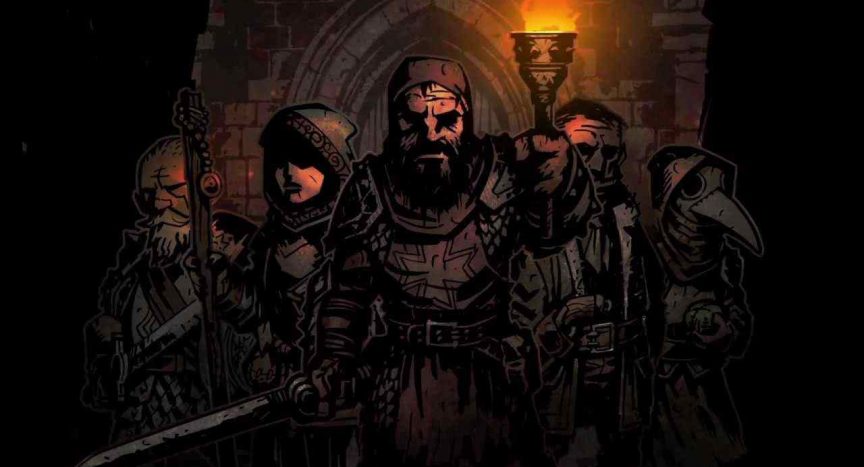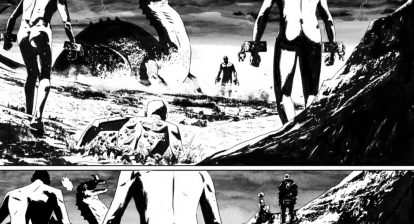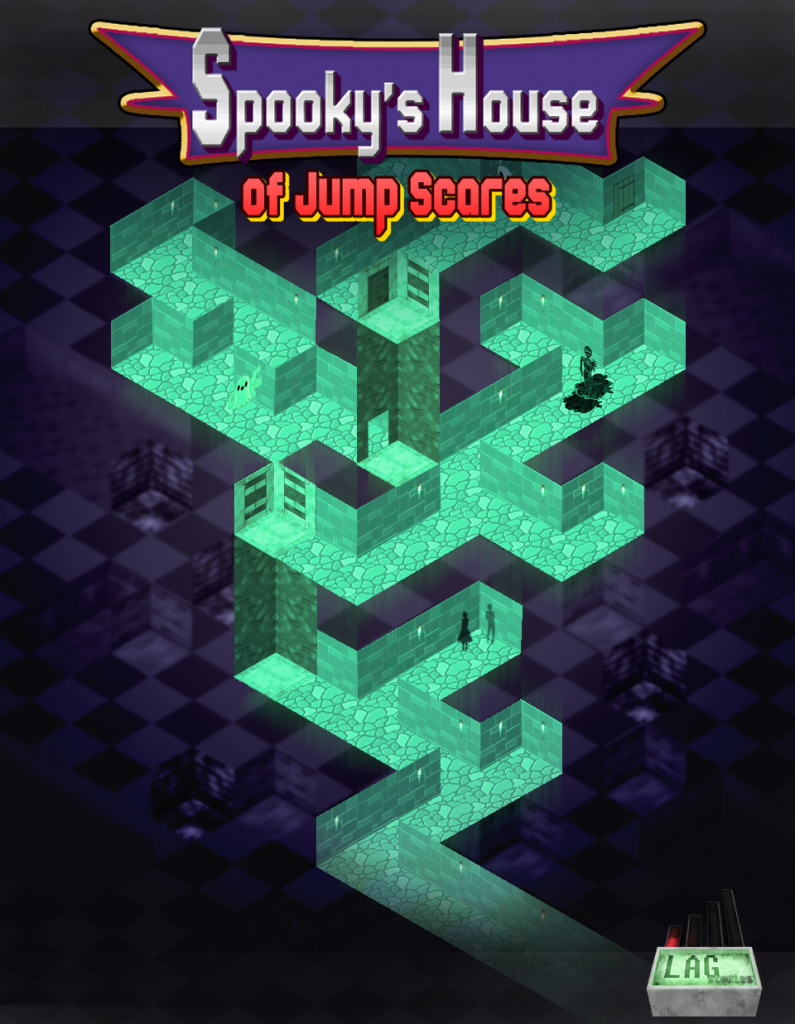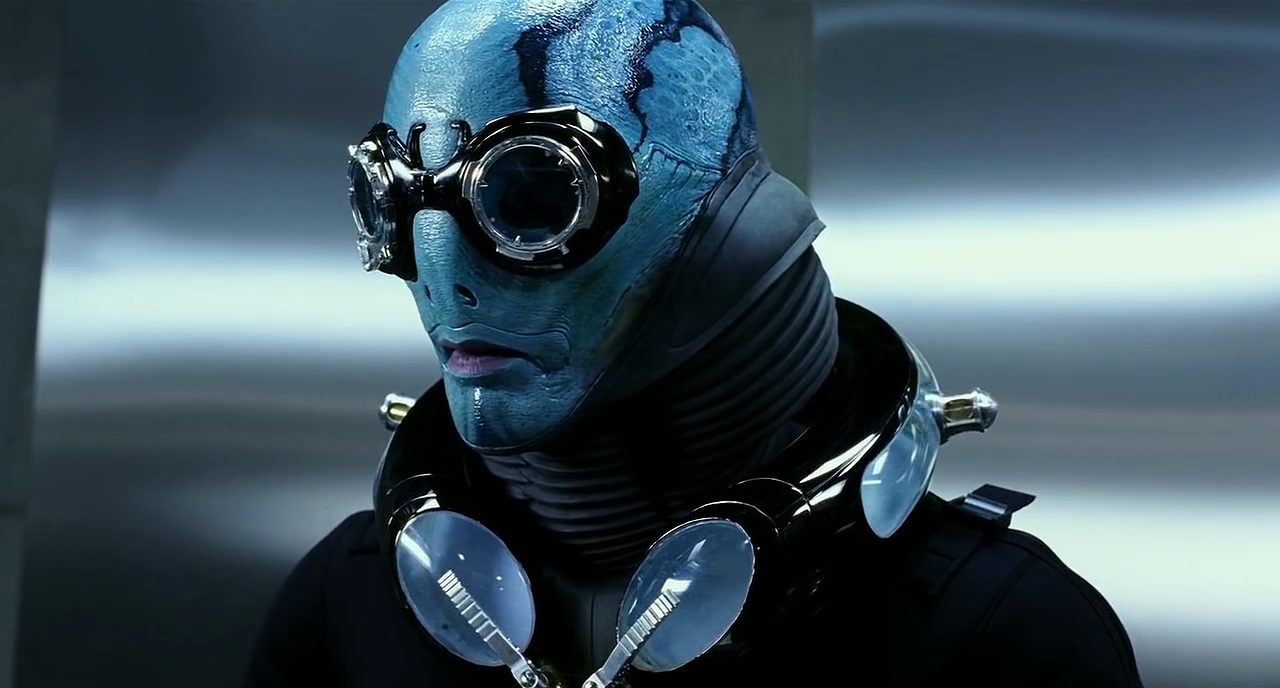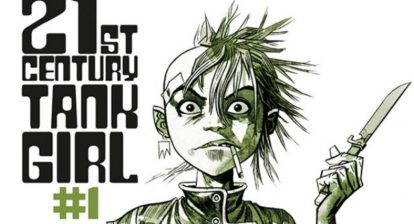We don’t usually cover video games here but Darkest Dungeon is something that I’ve personally been following for a while now, and I just had to share it. Darkest Dungeon is a lovecraftian roguelike centered around a group of flawed heroes diving into dungeons and killing monsters. The plot is fairly minimal here. A rich guy decided to poke around in the basement of his family estate and unfortunately unleashed… something. Now, heroes must explore the surrounding territory to destroy the monstrous threat that has been spreading ever since. Pretty straight forward, but it does have a bit of a twist. Instead of a story where the heroes slay the monsters and march back out into the daylight victorious, the horrors of the dungeons stay with them.
Darkest Dungeon introduces us to the Stress system. Beneath each hero’s health bar is their stress meter, which can be filled up in various ways. Being attacked, torchlight fading, or even certain special events like being forced to dig through a pile of corpses can cause stress. When that meter hits 100 the hero’s resolve is tested, and they can either come out on top and pull through (which causes a temporary buff) or they will develop a personality quirk. This can be anything from “masochistic” to “abusive” and they have various effects in combat including stealing items, ignoring your commands, or stressing out your other party members even further.
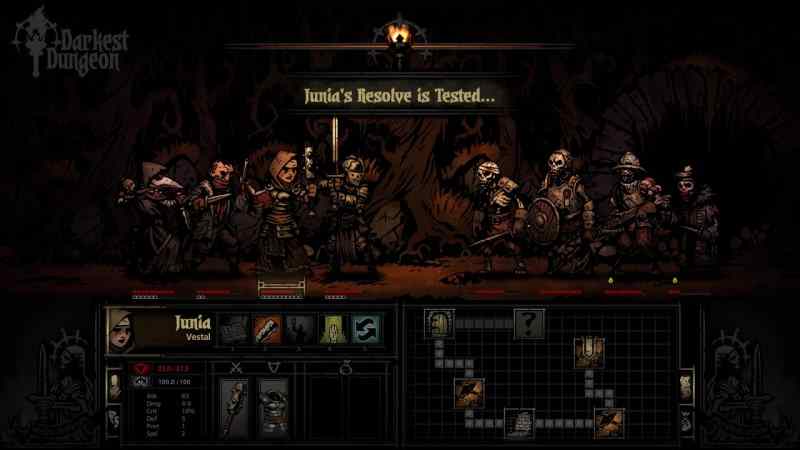 This system is what the entire game revolves around as it’s basically split up into two basic parts. You have your dungeons, which is the meat of the game. I mentioned previously that this was a “roguelike” and for those of you that are unfamiliar with the term, it’s characterized by procedurally generated levels and permanent character death. You take your party of four heroes into a number of levels that are randomly created and set up with traps, enemy encounters, background objects to interact with, and sometimes boss fights. The other side of the game is the Hamlet (your town). This is where you level up your heroes’ armor and abilities, but more importantly where you can relieve their stress. This isn’t an instant process (their stress isn’t relieved until you return from another dungeon crawl) which means you’ll constantly be switching out your team and trying different heroes and different combinations of classes. You can only take four with you on each adventure, but can have a roster of well over ten and you can recruit more each time you return to the Hamlet.
This system is what the entire game revolves around as it’s basically split up into two basic parts. You have your dungeons, which is the meat of the game. I mentioned previously that this was a “roguelike” and for those of you that are unfamiliar with the term, it’s characterized by procedurally generated levels and permanent character death. You take your party of four heroes into a number of levels that are randomly created and set up with traps, enemy encounters, background objects to interact with, and sometimes boss fights. The other side of the game is the Hamlet (your town). This is where you level up your heroes’ armor and abilities, but more importantly where you can relieve their stress. This isn’t an instant process (their stress isn’t relieved until you return from another dungeon crawl) which means you’ll constantly be switching out your team and trying different heroes and different combinations of classes. You can only take four with you on each adventure, but can have a roster of well over ten and you can recruit more each time you return to the Hamlet.
This is a good thing, because this game is hard. Like I said, character death is permanent and it’s something you should get used to. The combat system is deep and requires a good amount of careful planning and strategy to make it out alive. The position of your team members is crucial as well, with certain attacks only hitting enemies in the front, the middle, or the back. Other attacks can only be done when your character is in a certain position. On top of this, healing is incredibly limited and can barely be done outside of combat (eating food gives you a bit of health). While this is something I thoroughly enjoy I can definitely see it turning a lot of people off. Personally, I think that if you stick with it and get through that beginner’s hump where the game just kicks your ass you’ll find it very rewarding when you start to do better.
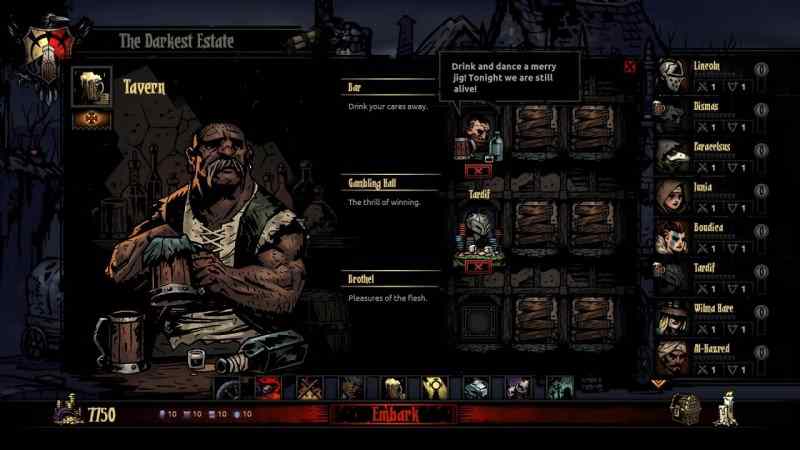 Gameplay aside, it’s worth sticking it out through the difficulty just for the atmosphere. This game looks beautiful, going with a hand drawn (appearing) 2D visual style that’s reminiscent of Mike Mignola’s artwork from the Hellboy comics. Everything is moody and dark, with black shadows and twisted monsters behind every corner. This is a dungeon crawler, but it’s definitely no Legend of Zelda. The skeletons, pig-men, walking fungus, and Lovecraftian nightmares that lurk in the darkness are all well designed and interesting, showing us something that is both familiar and yet totally unique. Even the character classes are a little bit different. Sure, there’s your normal stuff like the Crusader and the Vestal (which are basically a Paladin and Cleric), but then we have some oddities like the Leper or the Jester, who serve as a tank and a bard respectively. On top of the visuals, the audio is great too, with brooding music and a narrator that completely steals the show. His booming voice could bottom out the bass on your speakers and it gives an intense gravity to everything that’s said.
Gameplay aside, it’s worth sticking it out through the difficulty just for the atmosphere. This game looks beautiful, going with a hand drawn (appearing) 2D visual style that’s reminiscent of Mike Mignola’s artwork from the Hellboy comics. Everything is moody and dark, with black shadows and twisted monsters behind every corner. This is a dungeon crawler, but it’s definitely no Legend of Zelda. The skeletons, pig-men, walking fungus, and Lovecraftian nightmares that lurk in the darkness are all well designed and interesting, showing us something that is both familiar and yet totally unique. Even the character classes are a little bit different. Sure, there’s your normal stuff like the Crusader and the Vestal (which are basically a Paladin and Cleric), but then we have some oddities like the Leper or the Jester, who serve as a tank and a bard respectively. On top of the visuals, the audio is great too, with brooding music and a narrator that completely steals the show. His booming voice could bottom out the bass on your speakers and it gives an intense gravity to everything that’s said.
My personal experience with Darkest Dungeon has been really enjoyable, but it’s definitely not a game for everyone. Like I said before, it’s really hard so if deep turn-based combat strategy and micro-managing aren’t really your thing this could be a bit difficult to get into. Also keep in mind that this is still in early access, so there are bound to be a few bugs. The game is essentially unfinished, but the amount of polish that’s currently there doesn’t give me any second thoughts about recommending it right now. It’s available through Steam for both Mac and PC and there are plans to bring it to PS4 and Vita down the line. At the very least take a look at the trailer and see if it strikes your fancy.
